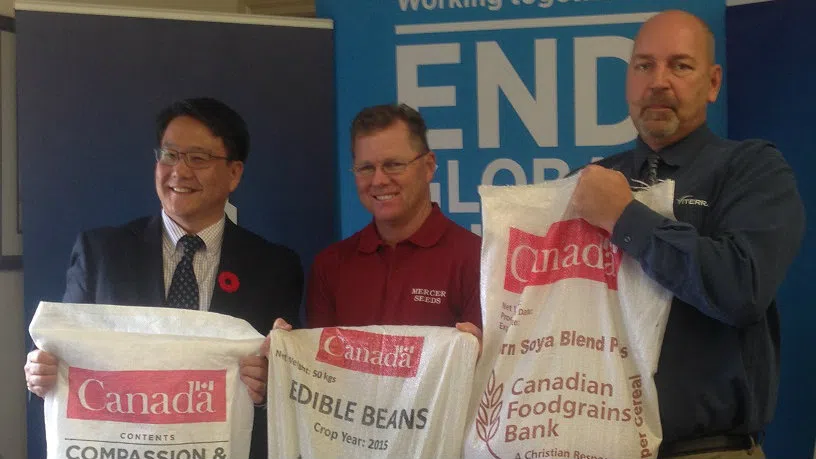
Partnership between Viterra and Canadian Foodgrains Bank to help less fortunate around the world
LETHBRIDGE – Viterra and Canadian Foodgrains Bank celebrated the second year of their partnership on Tuesday, Nov. 6, which saw over 300 acres seeded earlier this year that will benefit hungry people in parts of the developing world.
A release states the project builds on last year’s successful pilot project, which saw Viterra provide the Foodgrains Bank with access to 42 acres of land to farm around its terminals in Balgonie, Saskatchewan and Stettler, Alberta.
This year, a total of 326 acres from Viterra terminals in Lethbridge and Trochu, as well as terminals in the Saskatchewan towns of Raymore and Grenfell, were also made available.
Southern Alberta Canadian Foodgrains Bank Coordinator, Andre Visscher, says it’s great to see people working together, all with a common goal to end hunger in this world.


